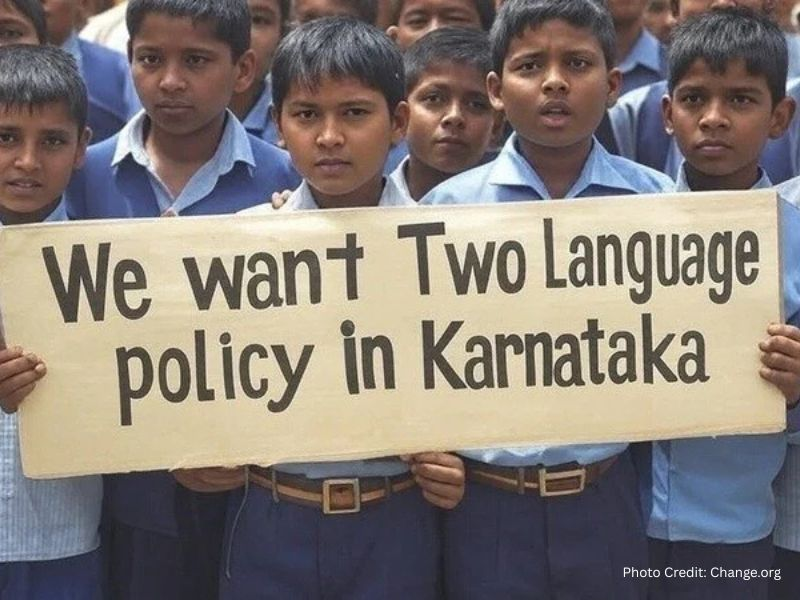Karnataka's Two-Language Policy Proposal
Background:
- Issue: Debate over continuing the three-language policy in Karnataka’s education system.
- Reference States:
- Tamil Nadu (follows two-language policy for decades)
- Maharashtra (recently switched to two-language system)
Report by:
- State Education Policy (SEP) Commission
- Recommendation: Adopt a two-language policy in education.
- Report expected to be submitted by end of July.
Key Person:
- Purushottam Bilimale, Chairman, Kannada Development Authority (KDA)
- Strongly supports two-language policy.
- Urged the government to follow the lead of Maharashtra and Tamil Nadu.
Concerns with the Three-Language Policy:
- High failure rate in third language (Hindi) in SSLC exams.
- Third language is not evaluated in central board exams.
- Creates extra academic pressure on students.
Private Schools’ Stand:
- Association of Management of Primary and Secondary Schools in Karnataka (KAMS) opposed the move.
- Argue three-language policy allows students to learn an additional language.
Oppose imposition of Hindi, but support optional third language.
Karnataka’s Greenhouse Gas (GHG) Emissions
Main Report Details:
- Report by: CSTEP (Centre for Study of Science, Technology and Policy)
- Title: “Namma SAFARI: Low-Carbon Development Pathways for Karnataka”
- Projection: GHG emissions could exceed 400 million tonnes (MT) by 2050.
- With low-carbon strategies, emissions can be cut to 50 MT by 2050.
Six Key Factors of Namma SAFARI:
- Karnataka’s first integrated system dynamics model.
- Tracks long-term sectoral interactions across:
- Energy,Transport,Industry,Buildings,Agriculture,Land use
- Forecasts up to the year 2050.
Electricity Demand – Sectoral Impact:
- Buildings sector: Could account for 40% of total electricity demand by 2050.
Demographic and Economic Projections:
- Karnataka’s population to cross 75 million by 2050.
- Gross State Domestic Product (GSDP) expected to reach ₹128 lakh crore (at 2011 constant prices).
Agriculture and Transport Highlights:
- Expand Minimum Support Price (MSP) to more crops (currently only 8% covered).
- Promote rail freight – shifting 33% of freight to rail by 2030 may save:
- 50 crore litres of diesel
- Electrification can double power demand by 2050.


